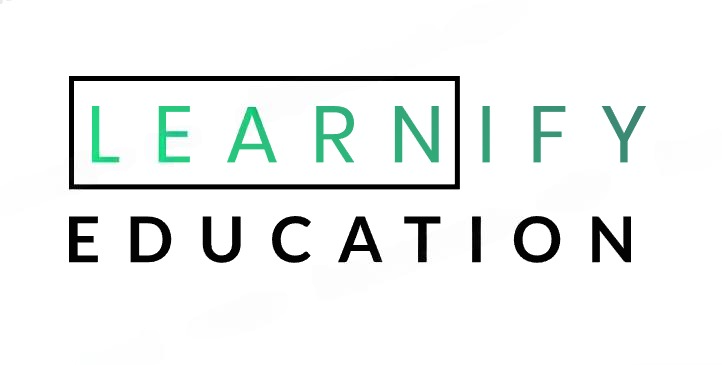AI and ML Career Options: A Guide to Building a Future-Proof Career
Compare India’s leading universities on a single platform within two minutes. Online MBA for job professionals 100 + Universities 30X comparison factors Free expert consultation Quick Loan facility Post Admission Support Learnify Exclusive Community Job + Internship Portal No-Cost EMI From ₹5100/- Subsidy Available upto ₹20,000/- The world is rapidly evolving with Artificial Intelligence (AI) and Machine Learning (ML) at the helm. These technologies are reshaping industries, enhancing efficiencies, and paving the way for a smarter future. For aspiring professionals, careers in AI and ML offer not just lucrative salaries but also the opportunity to be part of groundbreaking innovations. This blog delves into the vast career opportunities in AI and ML, the skills needed, and how you can start your journey in these exciting fields. What Are AI and ML? Artificial Intelligence refers to the simulation of human intelligence in machines, enabling them to perform tasks such as reasoning, learning, and decision-making. Machine Learning, a subset of AI, focuses on training algorithms to learn from data and improve their performance without explicit programming. These technologies power applications like virtual assistants, predictive analytics, autonomous vehicles, and medical diagnostics. As industries integrate AI and ML into their operations, the demand for skilled professionals continues to grow exponentially. Top Career Options in AI and ML The fields of AI and ML encompass a variety of career paths. Here are some of the most in-demand roles: 1. Data Scientist Data scientists analyze large volumes of data to extract meaningful insights. They use tools like Python, R, and SQL to build predictive models and guide decision-making processes. This role combines statistics, machine learning, and programming, making it a cornerstone of AI and ML careers. Key Skills: Data analysis, machine learning algorithms, data visualization, programming. 2. Machine Learning Engineer ML engineers design and deploy scalable machine learning systems. They work closely with data scientists to integrate algorithms into applications and optimize performance. Key Skills: Python, TensorFlow, PyTorch, cloud platforms (AWS, Azure), software development. 3. AI Research Scientist AI research scientists focus on developing new algorithms and enhancing existing models. They work on advanced topics like computer vision, natural language processing (NLP), and robotics. Key Skills: Research methodologies, deep learning, advanced mathematics, and programming. 4. AI/ML Product Manager Product managers in AI/ML oversee the development of AI-powered products. They bridge the gap between technical teams and business stakeholders, ensuring that AI solutions align with user needs. Key Skills: Business strategy, product lifecycle management, technical understanding of AI. 5. Robotics Engineer Robotics engineers design intelligent machines that can perform complex tasks. This role combines AI with mechanical engineering, making it ideal for professionals interested in both hardware and software. Key Skills: Robotics frameworks (ROS), mechanical design, and computer vision. Emerging AI and ML Specializations As these fields evolve, several niche roles are emerging: NLP Specialist: Focuses on developing algorithms for language processing, such as chatbots and translation systems. Computer Vision Engineer: Works on applications like facial recognition, object detection, and augmented reality. Ethics Consultant: Ensures AI systems are developed responsibly, addressing issues like bias and privacy. Skills Required for a Career in AI and ML Succeeding in AI and ML requires a blend of technical expertise and soft skills. Here’s what you’ll need: 1. Technical Skills Programming: Master languages like Python, Java, and C++. Mathematics: A strong foundation in linear algebra, calculus, probability, and statistics. AI/ML Tools: Familiarity with frameworks such as TensorFlow, PyTorch, and Scikit-learn. Data Handling: Proficiency in data preprocessing, cleaning, and visualization. 2. Soft Skills Problem-Solving: The ability to approach challenges analytically and creatively. Communication: Explaining technical concepts to non-technical audiences is often required in consulting and management roles. Adaptability: Staying updated with the latest advancements in AI and ML. How to Begin Your AI and ML Journey Starting a career in AI and ML involves both academic preparation and hands-on experience. Here’s a step-by-step guide: 1. Educational Path Pursue a degree in computer science, engineering, or mathematics. Specialized AI/ML programs are now offered by many institutions worldwide. Online platforms like Coursera and Udemy also provide affordable and flexible learning options. 2. Build a Strong Portfolio Practical experience is key. Work on real-world projects, participate in hackathons, or contribute to open-source AI/ML initiatives. Platforms like Kaggle provide opportunities to solve real-world problems using AI. 3. Gain Certifications Certifications in AI and ML from reputable platforms like Google AI, Microsoft Azure, or IBM can boost your resume. They demonstrate expertise in specific tools and technologies. 4. Network and Learn Join AI communities, attend conferences, and follow thought leaders in the field. Networking can open doors to mentorships and job opportunities. The Future of AI and ML Careers AI and ML are no longer just buzzwords—they’re integral to solving real-world challenges. From automating routine tasks to tackling global issues like climate change and healthcare, these technologies are shaping the future. With job opportunities expected to grow by 35% in the next decade, a career in AI and ML offers not just financial rewards but also the chance to make a meaningful impact. Conclusion AI and ML careers are at the forefront of innovation, offering diverse opportunities for those with the right skills and mindset. Whether you aim to develop intelligent algorithms, manage AI-powered products, or contribute to ethical AI practices, there’s a role for everyone in this transformative field. Start learning today, gain practical experience, and become part of the AI revolution. The possibilities are endless, and the future is yours to shape!














